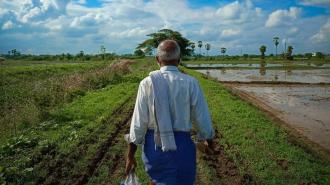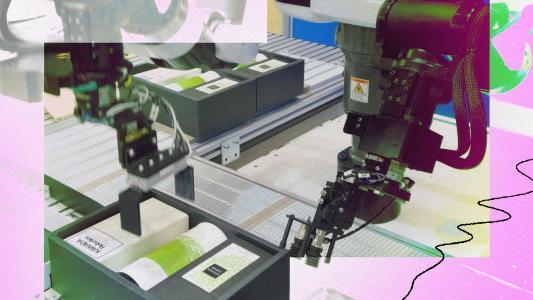A wide set of climate and economic challenges
India’s smallholding farmers face significant challenges. They struggle with erratic weather and the impacts of climate change, pest infestations, and declining yields. Financially constrained, many are trapped by high-interest loans from local lenders. Post-harvest, issues such as crop wastage, logistics, and market access can add to their troubles, with up to 40% of produce lost. Market fluctuations and the inability to meet quality standards further exacerbate their struggles.
The impact of Artificial Intelligence on agriculture in India
In response to these challenges, the World Economic Forum’s Artificial Intelligence for Agriculture Innovation (AI4AI) initiative is stepping in to support India’s agricultural transformation by driving the use of artificial intelligence (AI) and related technologies for agricultural advancements. Led by the Centre for the Fourth Industrial Revolution (C4IR) India, this initiative brings together government, academia and business representatives to develop and implement innovative solutions in the agriculture sector.
One of the most successful implementations of the AI4AI initiative is the ‘Saagu Baagu’ pilot, developed in partnership with Telangana state government, in its Khammam district, supported by the Bill and Melinda Gates Foundation and implemented by Digital Green. The project has substantially improved the chili value chain for more than 7,000 farmers. The state government of Telangana has played a key role in this transformation by creating enabling infrastructure and policies including India’s first agriculture data exchange and agri data management framework.
Saagu Baagu has demonstrated remarkable results in its first phase of implementation. Farmers participating in the programme saw a 21% increase in chili yields per acre, a 9% reduction in pesticide use, a 5% decrease in fertilizer usage, and an 8% improvement in unit prices due to quality enhancements. As a consequence of these improvements, farmers have seen their incomes soar by more than INR 66,000 (around 800 USD) per acre per crop cycle, effectively doubling their earnings. These figures not only highlight the effectiveness of Saagu Baagu but also its contribution to sustainable and efficient agricultural practices.
Building on these successes, in October 2023, the Telangana government expanded Saagu Baagu’s scope. The project now aims to impact 500,000 farmers, encompassing five different crops across ten districts. This expansion is a strategic move to maximize the benefits of innovative agricultural technologies, potentially transforming the agricultural landscape of the region.
Join our global movement for sustainable agriculture
As the Global South tackles the critical challenges of food security, climate resilience, and sustainable livelihoods, the AI4AI initiative stands as a concrete example of successful agricultural innovation.
C4IR India is applying these learnings not only locally but is also exporting this knowledge to other C4IR Centres in Colombia, Saudi Arabia, and South Africa. We welcome organizations and governments to join forces with the Centre for the Fourth Industrial Revolution Network and contribute to a positive global agricultural impact.
This article is republished from the World Economic Forum under a Creative Commons license. Read the original article.






